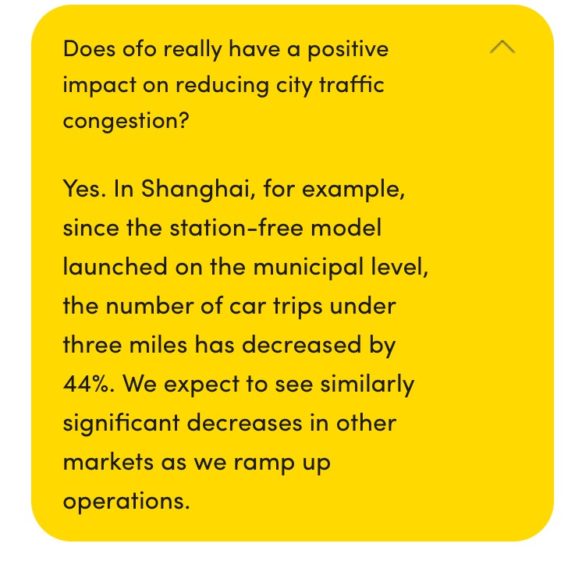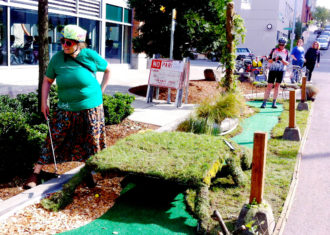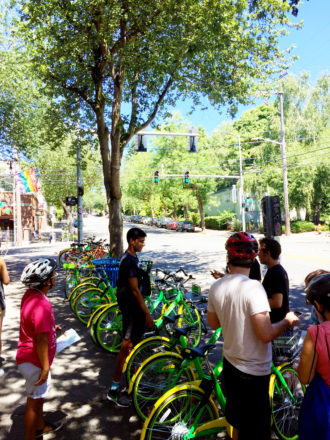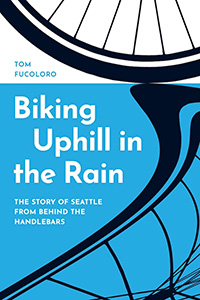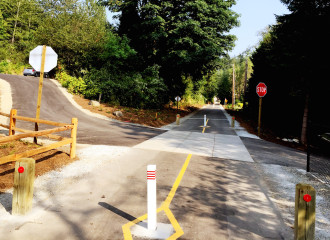
The City of Sammamish and King County are fighting in court over four proposed stop signs on two very low-traffic streets serving a handful of wealthy lakefront homes, and that fight is further delaying construction on the E Lake Sammamish Trail.
The good news is that the County is winning so far. But the final outcome is still uncertain. From Cascade Bicycle Club’s Vicky Clarke:
Early this summer, the city of Sammamish ordered King County to stop construction of the East Lake Sammamish Trail (ELST), just as King County crews neared completion of the penultimate segment of the 11-mile trail. At issue was placement of stop signs in two locations on the trail. To resolve the dispute and complete the trail, King County asked the Federal District Court to step in and make a decision on the case. That decision came on August 8th when the Federal District Court ruled in favor of King County, meaning that construction can resume and the region is one step closer to realizing its vision of the Locks to Lakes corridorfor all to enjoy.
The rail trail connecting Issaquah to Redmond is already complete on the north and south ends, and the central connection through the City of Sammamish is funded and ready for construction. But Sammamish has decided to fight King County over a couple measly stop signs.
The County’s engineers, following best safety practices for multi-use trails, designed the signs to point towards the low-traffic streets. But Sammamish wants the stop signs to point towards the trail instead, and they are willing to delay the project and go to court over it.
What’s particularly frustrating about this lawsuit is that, as we pointed out in 2015 when the section to Redmond opened, the already-completed sections of the trail demonstrate in real life how the County’s design works. And it’s a vast improvement over many other trail crossings in Seattle and King County where stop signs facing the trail cause confusion. Here’s what we wrote in 2015 having no idea that such stop signs would prove controversial:
There are also significant safety improvements at driveways and street crossings. In fact, our other regional trails can learn a lot from the way these crossings are handled (I’m looking at you, Burke-Gilman Trail through UW, near U Village and in Kenmore).
Stop signs point to the streets and driveways, not the trail. This gives clear priority to people walking and biking without confusing anyone about who goes and who waits. Just like at any other crosswalk, people driving must stop and yield.

